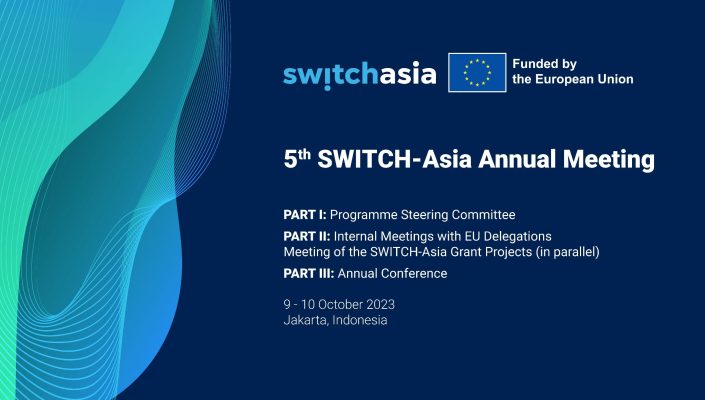The expansion of Vietnam’s fruit and vegetable processing industry into the EU

|
Vietnamese fruits, nuts and vegetable processing industry had accessed a wide door with huge opportunities when entering the EU market since August 1, 2020, the day EVFTA came into effect. Still, once again, the problem of “achieving quality” was posed for businesses. Strict input but full of potential The EU is considered as a potential market for Vietnam’s processed fruits, nuts and vegetable due to significant and stable demand (accounting for 45% of the global trade value of vegetables and fruit). The EU’s large market size and seasonal demand are two factors that attract the interest fromVietnamese processed fruit and vegetables producers. In fact, the industry is one of the agricultural industries that will gain the most benefits from EVFTA. According to the Ministry of Agriculture and Rural Development (MARD), in the first 7 months of 2020, fruit exports reached US$59.18 million (accounting for 73.54% of the total export value of vegetables and fruits to the EU), of which processed fruits account for 33.4%. The main Europe importers for Vietnam’s processed fruit and vegetables are the Netherlands, the UK, France, Germany, Italy and Switzerland. However, the EU is also a “fastidious” market with strict regulations on technical barriers, pesticide residues, prohibited and restricted substances, etc. Any violation of agreements can result in immediate revocation of authorization to export, causing additional harms not only to the enterprise but also to the fruit and vegetables processing industry in Vietnam. The utmost objective of the industry is to create value-added chains based on the basis of food safety. Therefore, ensuring that processed agricultural products get eco-fair certification is one of key success factors if the processed vegetable, fruit, and fruit industry want to “gear up” for the EU market. The biggest challenge faced by the processed vegetable and fruit industry is that most Vietnamese agriculture enterprises are small and medium enterprises with scale of agricultural production range from very small to small. At present, the cultivation areas for safe fruit and vegetables are still limited, accounting for only about 8-8.5% of the total vegetable growing area nationwide. Still, the remaining issues were relatively big, including planning and investing in equipment, technology, training to raise awareness and skill level of manufacturers. Besides, EU consumers also pay more attention to food products with traceability, clear origin and having organic certified or fair trade certification. Compliance with certifications is a measure of delivering fruit and vegetables in an environmentally and socially responsible manner. To increase the export of vegetables and fruits to the EU, EU economists said that Vietnamese enterprises need to ensure the quality and food hygiene of the products; the production process must be implemented according to the closed chain from first to last. Moreover, quality control must be carried out strictly. There is a need for coordination between farmers, businesses, state management agencies, and government support in both policy and finance. The benefits when fruit-processed products are eco-fair certificated The EVFTA Agreement has expanded Vietnamese processed fruit, nuts and vegetables, opportunities to enter the EU market, allowing any processed products to be exported to the EU. It is essential for them to meet the technical barriers, regulations on food quality, safety, traceability. If the issues of clean and sustainable agricultural production are solved, Vietnam will have the potential to enhance the volume offruit and agricultural exported to the EU and expand into other export markets worldwide. The small size and scattered production scale are two factors that will create many difficulties for Vietnamese products in the competitive market. Producing in a eco-fair method will create specialized farming and concentrated production areas. Cooperative groups or new generation cooperatives consists of small-scale production households are recommended in order to create sustainable growing areas of fruit and vegetables, meeting the needs of domestic consumption and export. Members of cooperatives are entitled to receive economic advantages such as improve value of goods, increase per unit of land, increase income for farmers and business efficiency of purchasing, preserving and consuming establishments.s Having an eco-fair certification also contributes to the brand of fruit and vegetablesMade in Vietnam and builds consumer confidence in using clean and green products. Consumers can easily trace the product’s traceability from seed selection, cultivation, tending, harvesting, and post-harvest storage to processing. Moreover, if fruits and vegetables products are processed in an ecological and fair manner, on the technical and economic aspects, it will help maintain the increase in labor productivity in the long term; reduce the production process, reduce input costs, increase income for farmers on the basis of best satisfying social needs for agricultural products. On the ecological aspect: Any agricultural system which unnecessarily weakens, pollutes, disrupts the ecological balance of the natural system, is not sustainable; Therefore, agricultural production that promote ecological and fairness will minimize the harmful effects of the environment, protect natural ecosystems and biodiversity. In terms of the human environment, this production orientation helps improve people social relationships, health, culture, and spirit. In order to produce products that meet the standards, workers’ awareness and working proficiency are required, while eliminating the negative perceptions and attitudes from less educated farmers. Sustainable agricultural development is the “right direction”, both in theory and practice. Therefore, it is necessary to ensure all 3 pillars of sustainability: economy, environment, and social. Sustainable agriculture has its own characteristics, criteria, and content; hence it has a development process. As for the processed fruit, nuts and vegetables industry, it proves to have develops sustainably while continuously increasing export capacity. It is necessary to focus on improving product quality, investing in preservation technology and means of transportation, price stabilization,… to consolidate traditional markets and expand exports to new markets.
|





